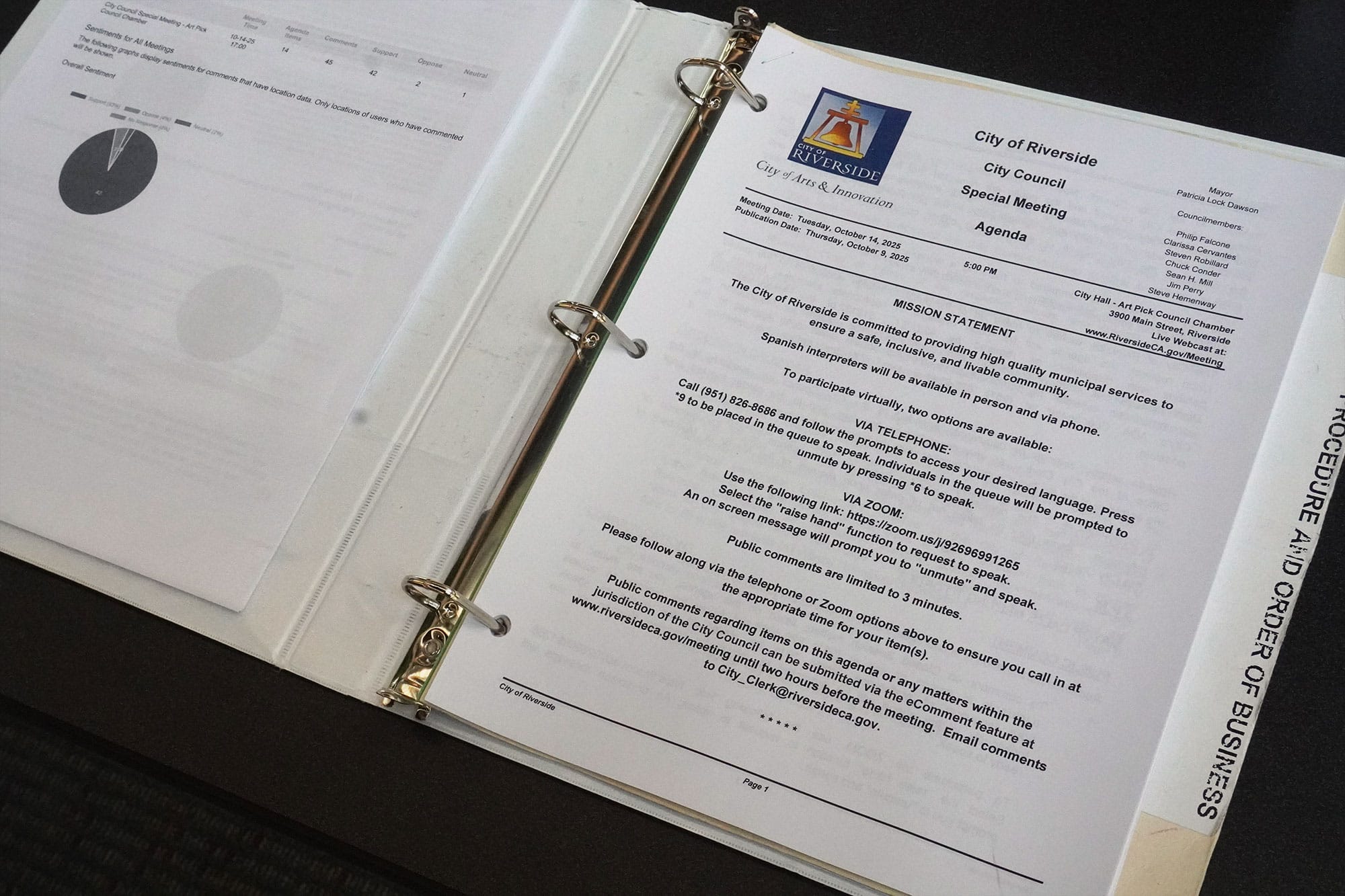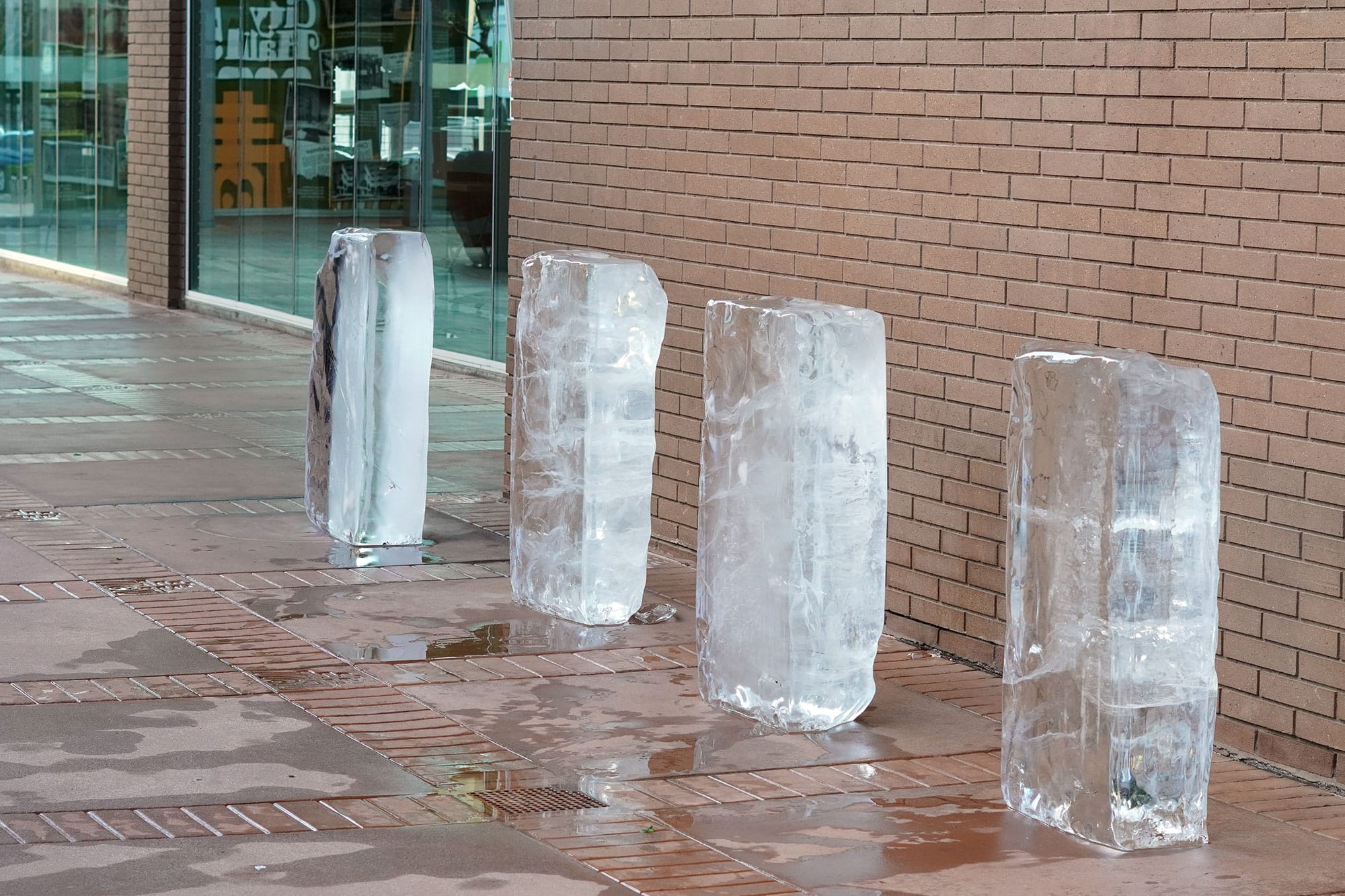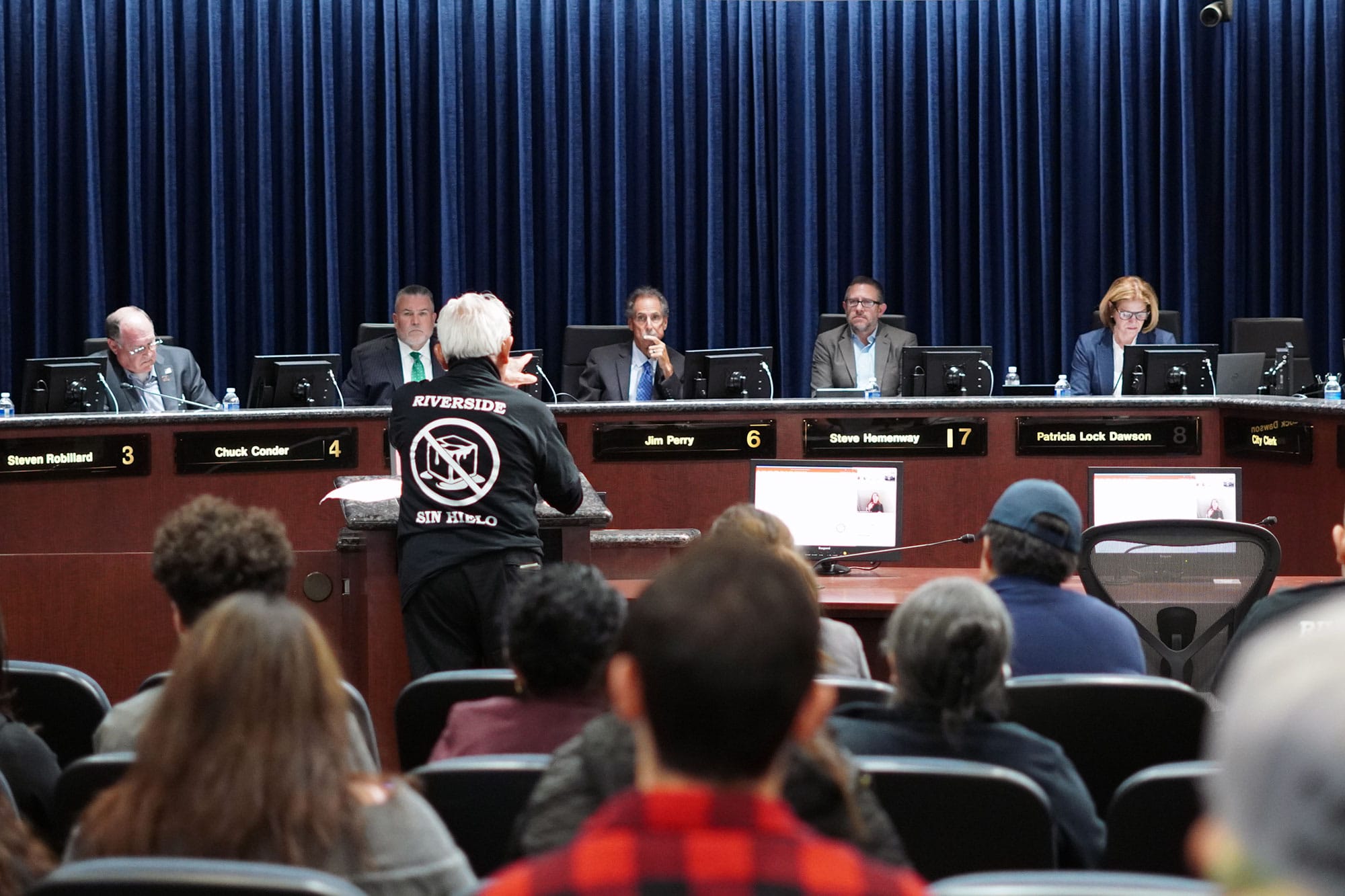This Week in City Hall: January 26, 2026
City Council will discuss placing tax measures on the June ballot including a potential 0.25% sales tax generating $21 million annually and consider warehouse development restrictions.
Resolution calling for clear identification of federal agents passes 4-3 despite concerns about jurisdictional limits and symbolic nature.

The Riverside City Council passed a resolution Tuesday night affirming the importance of transparency and identification standards in federal immigration enforcement activities within the city. The resolution passed with a 4-3 vote after more than three hours of public testimony from over 60 speakers.
The resolution calls for federal immigration enforcement personnel operating within Riverside to use clearly marked vehicles, wear visible agency identification, and follow transparent protocols that allow residents and local officials to verify their authority. It also directs the Riverside Police Department to monitor suspected federal enforcement activity when legally permissible and document such interactions.
Councilmember Clarissa Cervantes, who brought the resolution forward, said the measure addresses ongoing concerns about federal agents operating in unmarked vehicles with masked faces. "We are living in unprecedented times," Cervantes said. "But I actually in a way don't believe that because history has shown that it will repeat itself."

The resolution specifically condemns "the use of unmarked vehicles, masked or plainclothes agents, and other nontransparent tactics" by federal immigration enforcement personnel including Customs and Border Patrol, Immigration and Customs Enforcement, and other federal agencies.
Councilmember Sean Mill seconded the motion, drawing on his personal background as the son of an immigrant. "My values and my beliefs have not changed, and I don't change my values and beliefs depending on who's in the White House," Mill said. "When federal agents enter our communities wearing masks, concealing their names and refusing to identify themselves, they cross a line that should chill every American to the bone."
The resolution builds on California state laws including Senate Bill 54, the California Values Act, which limits local resources in federal immigration enforcement. It also references recently signed California legislation aimed at protecting residents from immigration enforcement overreach.

More than 60 speakers addressed the council during public comment, with the overwhelming majority supporting the resolution. Many shared personal stories about fear within immigrant communities and urged the council to take action.

Ruben Gomez recounted what his wife witnessed at the July 9 Madison Street Home Depot operation that initially sparked Cervantes' policy push. "She said they had headhunters working with ICE, wore masks, did not have badges or uniforms," Gomez testified. "They were violently throwing day workers to the ground and placing nylon ties on their wrists and again throwing them in vans and cars. She said they were treated like animals."
Gomez added a personal reflection: "I now realize I could have been in the parking lot at Home Depot on July 9th if I had decided to work on the sprinklers that day."
Nancy Melendez, president of Spanish Town Heritage Foundation and a Ward 5 resident, reminded the council of previous commitments to community safety. "We have indeed talked the talk. Now it's time to walk the walk and fulfill the promise of a safe community for all," Melendez said.
Several speakers referenced incidents of people impersonating federal agents, including an arrest in Hemet where someone was found with fake equipment and weapons while posing as Border Patrol.
Opposition to the resolution came from three council members who argued it exceeds the city's jurisdiction and could potentially increase federal enforcement activity. Councilmember Chuck Conder said immigration enforcement "is not in the purview of the Riverside City Council" and called the resolution "a waste of taxpayer money."
Councilmember Jim Perry expressed concerns about the resolution potentially providing "a false sense of protection or security" and noted that the Riverside Police Department already has a foreign nationals policy addressing many of the same issues.
Councilmember Steven Robillard acknowledged the resolution was "thoughtful and careful in its wording" but said "immigration enforcement is a federal responsibility outside the city's jurisdiction and authority."
Chief Larry Gonzalez of the Riverside Police Department worked with Cervantes on amendments to the resolution. After the changes were made, Gonzalez said, "I can support that," while noting the department has "a very strong foreign nationals policy" (Policy 417) that already addresses some aspects of the resolution.
Councilmember Philip Falcone supported the resolution while noting his concern that it not be viewed as "a perfect solution." He emphasized that the federal government's supremacy clause remains in effect and the resolution cannot guarantee protection from federal enforcement.
Councilmember Steve Hemenway said he supported the "spirit of the resolution" as setting expectations for how people interact with dignity and respect, regardless of enforcement duties.
The resolution takes effect immediately and directs the city attorney and city manager to monitor federal enforcement activities and explore legal avenues to challenge practices that violate residents' rights.
The vote breakdown was 4-3, with Councilmembers Cervantes, Mill, Falcone, and Hemenway voting in favor, and Councilmembers Robillard, Conder, and Perry voting against.
Let us email you Riverside's news and events every morning. For free!